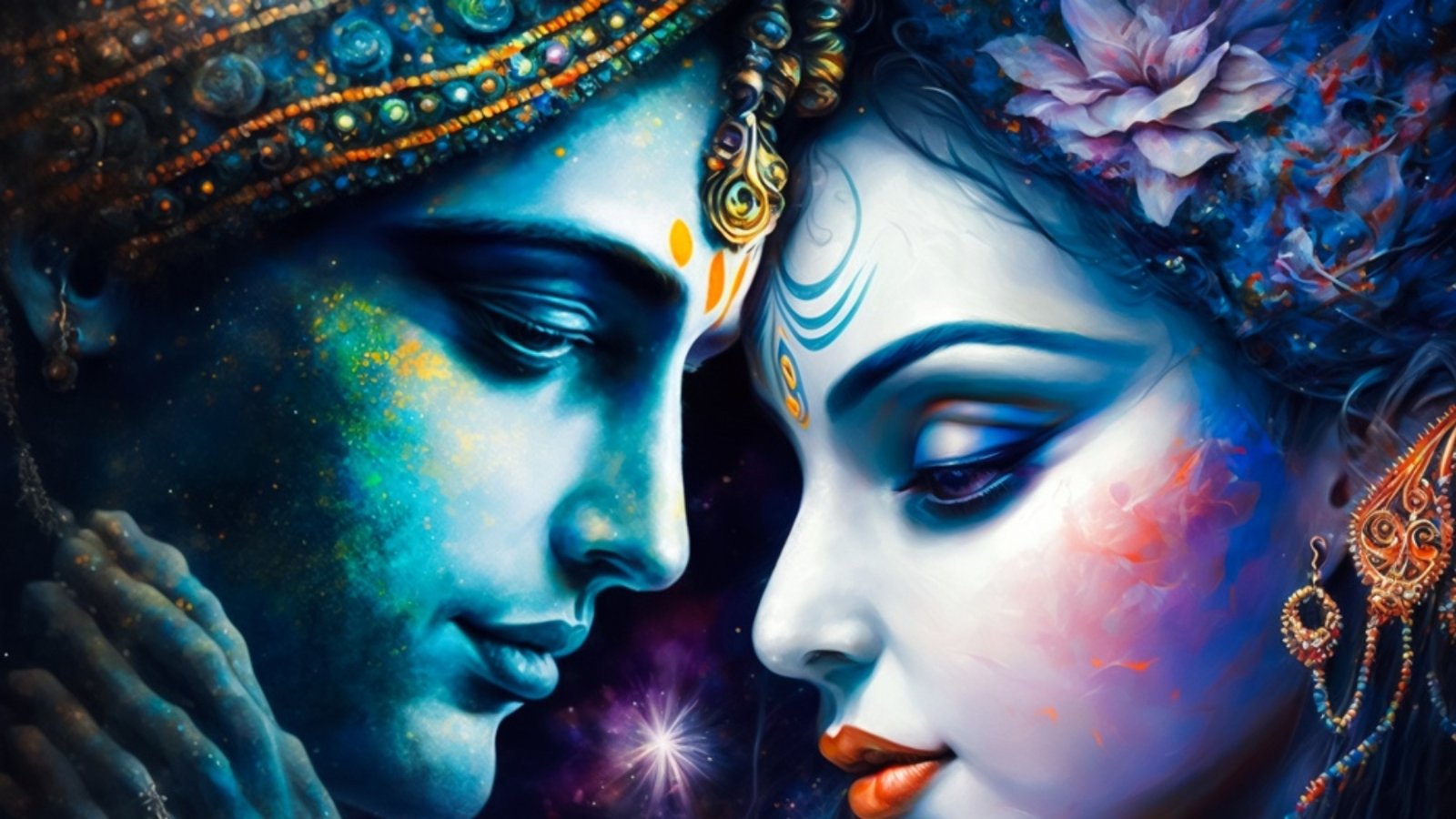“It seems there has always been a rivalry between man and woman. But they are equal; none is superior. Take pride in what you are in this life. You are a soul that has been in male and female bodies in different past incarnations. If you are a woman now and envy men, you may have to reincarnate as a man. And pay attention: if you are a man now and feel superior to women, you may have to be born as a woman.
Man argues that woman is emotional and cannot reason, and woman complains that man cannot feel. Both are incorrect. Woman can reason, but feeling is most important in her nature; and man can feel, but reason predominates in him. The ideal is to balance reason and feeling in one’s own nature. Those who are too feminine do not find freedom of the soul, nor do those who are too masculine. Each gender must strive for balance, learning from each other through friendship and understanding.
In great saints, we see combined ideal male and female qualities. Jesus was like that; all masters are. When you achieve that perfect balance between reason and feeling, you will have learned one of the main lessons for which you were sent here.” Journey to Self-Realization; Yogananda
What does Surya and Chandra mean? Surya is “sun,” and Chandra is “moon.”
We can say that the fundamental goal of all yogic practice is to balance our inner energies: the solar and lunar. In each of us and at different moments in life, and even throughout the day, we can perceive that one of these energies predominates. We are not talking about gender here; the soul has no gender, and in all of us, there is both the more solar and masculine energy and the more lunar or feminine energy; regardless of the body we reincarnate into. We can even observe many women who are more energetically “surya,” and men more “chandra,” so to speak.
In a few words, we can summarize what happens when we practice yoga: we balance these two energies (Surya and Chandra) and, consequently, awaken our spiritual energy of the self or the soul (Atma).
What does this mean, more profoundly?
When our surya energy is more predominant, we can tend to be more energetic, luminous, and strong. Our solar side is our masculine side, exuberant, extroverted, determined, visionary, focused, and healthy. The quality of the sun is warmth: welcoming, joyful, discerning, radiant, and of great physical power. It is an energy that externalizes and acts.
When the chandra energy prevails, we are usually more sensitive, emotional, and introspective. Our lunar side is feminine, relaxed, creative, and receptive. With these qualities, we can surrender more, connect more easily with nature, and perceive ourselves as part of it; we can intuit more of life’s subtleties.
Both energies are extremely important in authentic spiritual awakening; one complements the other. When integrated, we can truly experience the soul, the Self, the Spiritual Light from which we come (Brahma), which sustains us (Vishnu), and to which we dissolve (Shiva).
If we are excessively nourishing and nurturing our more solar and masculine part without cultivating our lunar delicacy, we may become, for example, more aggressive, impatient, egocentric, and arrogant. Denying our more feminine part makes us disconnect from our natural part, suppressing it; leading us to a space of imbalance, illness, and ignorance.
On the other hand, it is also true that if we become emphatically energetically only feminine; this can bring us an exaggerated sensitivity, and thus we let ourselves be carried away by the waves of emotions, losing discernment, the state of observation, and the stillness necessary to see and live in the truth of the Self, with expansion and amplitude.
We can even notice this when we meditate: for meditation to happen more naturally and smoothly, it is necessary to have the ability to immobilize oneself, detach oneself, and be consciously vigilant of everything that happens, inside and outside of us, with detachment and attention; but alongside this “Surya” and “Shiva” aspect, we also need “Chandra” or “Shakti”: to relax, let go, surrender, open up, and be receptive, accepting the process wholeheartedly.
If we go even more into details and depths, this applies to everything in life: it is not enough to discipline and self-control oneself if we create expectations of results without having the patience to let come what must come… And the same happens oppositely: it is of no use to “live in the present” with lightness, flowing in life’s events if we also do not have the willpower to transform ourselves, purify ourselves, and truly elevate ourselves.
The secret of happiness is this inner balance: acting positively toward justice and Dharma (right action aligned with Divine will) and completely surrendering the results to the Divine, without expectations; fully receptive to what is, in a state of gratitude and acknowledgment.
Let us not judge ourselves if we cannot always achieve this harmonic fullness. The fact that we are here and now reflecting, studying, and practicing yoga and meditation is already a sign that we are on this quest, and everything begins with it, incorporating these teachings into our daily lives. With time and patience, this balance and revelation of the Self will surely come when we least expect it.
“In every being, there is a masculine and a feminine nature. The masculine or positive side reveals itself as the powers of discrimination, self-control, and demanding judgment – qualities that express or respond to reason. The negative or feminine nature consists of feeling – love, sympathy, kindness, mercy, joy. In the ideal being, these two aspects are perfectly balanced. But if reason lacks feeling, it becomes calculating, hard, critical; and if feeling has no reason, it becomes blind emotion.” Paramahansa Yogananda, God Talks With Arjuna: The Bhagavad Gita
“The harmonious balance between reason and feeling leads to intuitive perception and the ability to know what is Truth. Achieving this balance, men and women become gods.” Paramahansa Yogananda, The Second Coming of Christ
Namaste, much love (prema), in service and in harmony surya-chandra
Spirit and Nature Dance Together: Radha Govinda.
Raquel Bhavani – Prema Kriya Yoga




